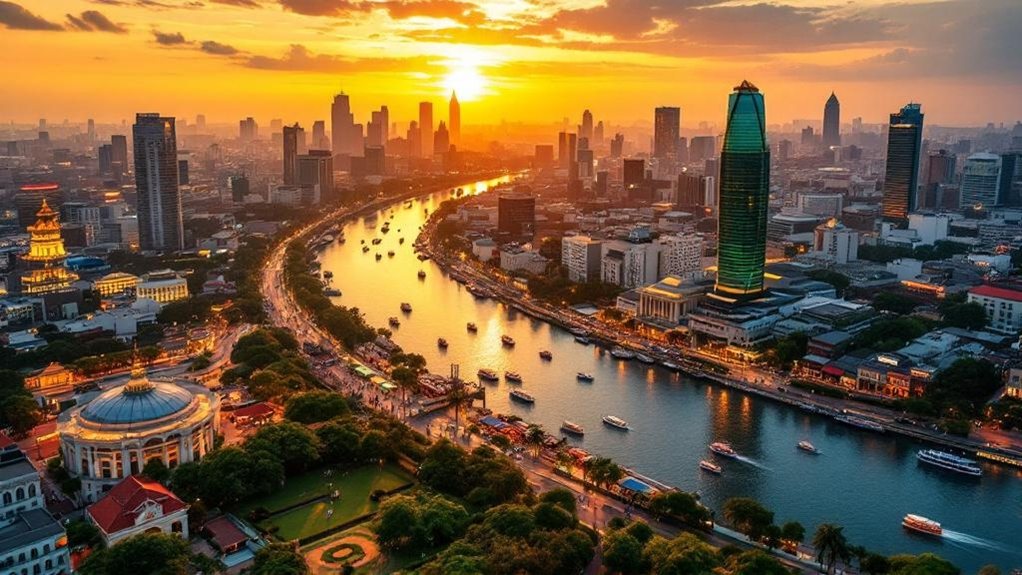Vietnam aims to surpass regional tourism rivals by partnering with Mastercard to harness advanced data analytics and real-time market research. This collaboration enables Vietnam to identify high-value visitor segments from key markets such as South Korea, China, India, and Australia, tailoring marketing strategies to maximize economic impact. By focusing on both major destinations and emerging regions, Vietnam seeks to expand international reach and visitor experiences, all while supporting sustainable growth. Further exploration reveals the strategic goals and targeted initiatives driving this surge.
A surge in international tourism is placing Vietnam among Southeast Asia’s top-performing destinations, as recent Mastercard data underscores a strong post-pandemic rebound in visitor arrivals.
Vietnam’s tourism sector has demonstrated substantial recovery, with international tourists returning in high numbers, especially from South Korea, China, India, and Australia. These markets have been identified as primary drivers of Vietnam’s tourism resurgence, contributing both high visitor volumes and significant spending.
International arrivals from South Korea, China, India, and Australia are fueling Vietnam’s impressive tourism recovery and driving record spending.
Mastercard data reveals that tourists from these countries increasingly seek unique and diverse experiences, prompting Vietnam to tailor its marketing campaigns and diversify its offerings to appeal to new geographic and demographic segments. Reflecting broader economic factors influencing travel, Vietnam’s affordability—due to a relatively weak currency—has made it especially attractive to price-sensitive international travelers.
To capitalize on this momentum, the Vietnam National Authority of Tourism (VNAT) and Mastercard have formalized a strategic partnership centered on data-driven growth.
Through this collaboration, Vietnam aims to leverage Mastercard’s expertise in global market research and international partnerships to sharpen its tourism strategy. The partnership involves the use of real-time data analytics to identify emerging trends in visitor behavior and spending patterns, which enables more targeted and personalized marketing efforts.
These initiatives focus not only on promoting major destinations such as Hanoi, Ho Chi Minh City, Da Nang, Ha Long Bay, Phu Quoc, and Nha Trang, but also on highlighting lesser-known regions to diversify tourist flows and support sustainable development.
The economic impact of this tourism surge is significant, with international visitors supporting local economies by generating demand in hospitality, dining, and retail sectors.
Mastercard’s insights help pinpoint high-value segments, allowing Vietnam to focus on attracting tourists who contribute substantially to economic growth. If users encounter access issues to tourism data sites due to security measures, they may receive notifications of being blocked and should follow provided steps to resolve the issue.
Vietnam has set an ambitious goal of welcoming 23 million tourists by 2025, positioning itself in direct competition with established regional leaders like Thailand.
Growth strategies prioritize expanding international reach, improving visitor experiences, and strengthening Vietnam’s global travel brand.
The combined use of advanced data analytics, targeted promotions, and international collaboration is central to Vietnam’s efforts to not only recover but also to outpace regional rivals and establish itself as a premier global destination.









